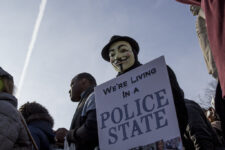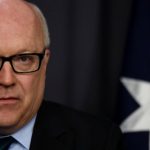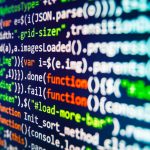As Long Warned, Terrorism Laws Are Being Turned on Citizens

The federal government has passed around 90 national security-counterterrorism bills, with bipartisan approval, since the 9/11 attacks took place in 2001. And while the projected enemy is shifting from Middle Eastern terrorists to a rising China, the imposing edifice of terror laws remains.
As Canberra has been enacting a multitude of measures ostensibly designed to deal with terrorists over the past two decades, civil liberties advocates have consistently warned that the laws could easily be turned upon regular citizens, who don’t have politically motivated violence as their aim.
Similar to Nietzsche’s Parable of the Madman, many of those social and legal commentators who’ve raised concerns about these laws have often been dismissed as being a little on the paranoid side. Indeed, just like the madman, the rest of those in the marketplace weren’t ready to listen.
But the recent arrest of Kristo Langker is proof they were right. The Friendlyjordies producer was taken into custody by the NSW Police Fixated Persons Investigations Unit on 4 June. And this has shaken many more to the understanding that there’s “something rotten in the state of” Australia.
And while the arrest of the producer reveals just how crudely government officials are prepared to stoop in applying these laws, Langker is hardly the first civilian to fall short of terror provisions, rather it’s his popular appeal that has shone a brighter light on this growing practice.
Terrifying satire
In the wake of the Lindt Café siege, the Fixated Persons Investigations Unit was brought in by NSW police commissioner Mick Fuller in 2017, as an initiative designed to allow police to monitor and act upon targets who pose a threat to public officials but don’t quite fit the definition of a terrorist.
Three plain clothes detectives from the unit turned up at Langker’s family home at around 5 pm on 4 June, wrestled him to the ground and took him away in an unmarked car. The detectives also allegedly scuffled with the 21-year-old’s mother and almost injured their elderly dog.
The young man was dragged off because he’d approached NSW deputy premier John Barilaro in a tongue-in-cheek manner twice in public whilst filming the interaction for posting. And on the first time, Friendlyjordies presenter Jordan Shanks accompanied him dressed as a Super Mario character.
Langker has been charged with two counts of stalking. And a precedent has now been set so that if a politician gets annoyed with some political satire focused upon them, they can now sic the fixated persons squad upon the comedians in question and further see them charged to shut them up.
Whistleblower prosecutions
Passed in the post September 11 terror law enacting frenzy, the National Security Information (Criminal and Civil Proceedings) Act 2004 (Cth) was aimed at protecting the nation’s national security interests by enabling closed court proceedings whilst prosecuting individuals over these matters.
The decision to prosecute Witness K and his lawyer Bernard Collaery for exposing an ASIS spying operation that saw the Timor-Leste cabinet room bugged has seen the NSI laws called into play, but not to protect our nation from terror acts, but rather to hide the obvious crimes of government.
Over the financial year 2018-19, then attorney general Christian Porter invoked the closed court secrecy powers contained within section 26 of the NSI Act in relation to both the K and Collaery cases. This is the first time the laws have ever been put to use.
At Witness K’s sentencing hearing last Friday, the doors of the court were regularly opened and then closed, depending on what was being discussed inside.
While in Collaery’s case, he’s currently challenging the use of the closed court provisions, as he gears up to fight the charge laid against him.
The terrors of journalism
A product of Home Affairs whilst Peter Dutton was still its head, the Telecommunications and Other Legislation Amendment (Assistance and Access) Act 2018 (Cth) (the TOLA Act) was sold to the public as a means to get through the wall of encryption that terrorists are hiding behind.
The TOLA Act is draconian in its reach. It permits government to require designated communications providers to initially assist them in accessing encrypted messages, or it requires them to use their capabilities to decrypt messages, or otherwise providers can be forced to build backdoor access.
In mid-2019, the AFP raided the Sydney officers of the ABC in relation to its publishing the details of alleged war crimes perpetrated by Australian special forces troops in Afghanistan, which were obtained via documents leaked to it by former ADF lawyer David McBride.
ABC News editor John Lyons commented that he was “staggered” by the scope of the warrant, which permitted officers to “add, copy, delete or alter” material on the broadcaster’s computers.
This new style of warrant was part of the terror-related powers the TOLA Act had bestowed upon law enforcement just half a year earlier.
Metadata for all
The Abbott government oversaw the passing of the Telecommunications (Interception and Access) Amendment (Data Retention) Bill 2015. It was the third tranche in a series of counterterrorism bills released in 2014, around the same time that concerns over the Islamic State were rising.
Then communications minister Malcolm Turnbull explained that metadata was central to counterterrorism investigations.
Since 13 October 2015, communications providers have been required to record all clients metadata for the period of two years. This includes the time and date of calls, emails, text messages and internet sessions.
However, by January 2016, around 60 government agencies were found to have been accessing citizens’ metadata. These entities included Australia Post, the ATO, Bankstown City Council, Greyhound Racing Victoria, and the Taxi Services Commission Victoria.
This agency free-for-all on metadata was eventually reined in. And these days, 22 law enforcement and intelligence agencies have warrantless access to this information.
But this episode does reveal that these sorts of laws, which are supposed to protect citizens, can easily be used against us all.
The heat turns up
Former NSW Council for Civil Liberties president Stephen Blanks told Sydney Criminal Lawyers in January 2018 that the real issue with legislating terror laws that erode the rights of all is not how they’re applied in the present but how subsequent governments might use them.
“These powers… sit on the statute books and represent a danger for society because of their capacity to be misused in the future,” Blanks warned.
However, since then, the Morrison government has come to power. And under it, not only have we seen the enactment of a plethora of terror laws, but so too, have we seen the AFP press raids, the move to prosecute whistleblowers and the silencing of critics via whatever laws are on hand.
Article image: “We’re Living In A Police State” by Lorie Shaull is licensed under under CC BY-SA 2.0







